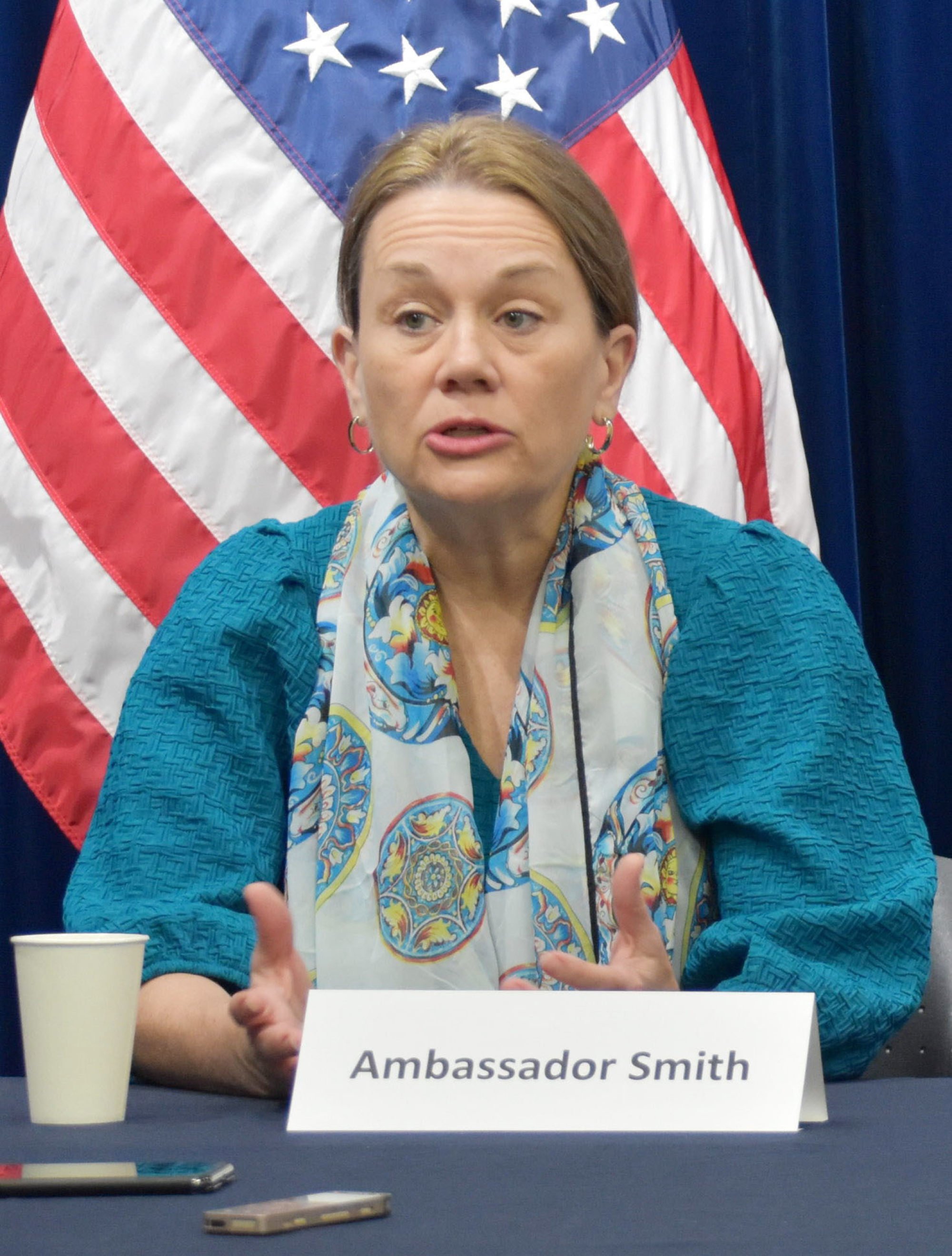Julianne Smith, the United States’ permanent Nato representative, said American and European ambassadors believed that China was using disinformation, cyberattacks, economic pressure and other means to try and undermine the technological advantage of countries including Nato members.
Beijing has cited the moves to accuse Nato of seeking to expand to Asia, but the alliance said its Asia-Pacific partnerships were driven by the countries concerned and did not concern Nato membership. Both Japan and South Korea have voiced concerns about China’s rapid military build-up and territorial moves in regional waters.
Last week, Smith led a delegation of Nato ambassadors from the Czech Republic, Denmark, Italy, the Netherlands, Poland, Romania and the United Kingdom to Japan and South Korea. The agenda included discussions on how the bloc could work more closely with Japan and South Korea on issues including emerging technology, cyber defence and supply chain security.

“We are all increasingly aware of a classic hybrid playbook that the PRC is relying on more and more,” Smith said on Wednesday, using the initialism for the People’s Republic of China. “And it comes down to this fundamental goal of eroding the technological edge of a number of countries around the world, including those in the Nato alliance.”
She said Nato held regular discussions on how it could keep its technological edge and include advanced technology in its strategies and military capabilities.
Discussions with non-members such as Japan and South Korea should not be seen as aggressive, Smith said. “I think we have to keep communicating to countries around the world what these partnerships are all about, why we value them and reiterate the point that Nato is in fact not enlarging around the world.”
The Nato envoys heard from Japanese and South Korean policymakers and academics, including Japanese Foreign Minister Yoko Kamikawa and South Korean Defence Minister Shin Won-Sik, about their national and international efforts to “cope” with China’s strategy, she said.
South Korea sets sights on new Nato strategy to tackle China clout
South Korea sets sights on new Nato strategy to tackle China clout
Smith declined to offer details on the strategies shared, saying they involved private discussions. The official statements from Japan and South Korea on meetings with the Nato delegation made no mention of China.
Nato heads of state and government at a July summit in Lithuania said China’s “coercive policies” were challenging their national interests, security and values, as they cited concerns over Beijing’s opaque military development and cooperation with Moscow.
Under an Individually Tailored Partnership Programme signed with Australia, Japan and South Korea at the summit, they will work together with Nato in 11 sectors including counterterrorism, emerging technologies and cybersecurity.

